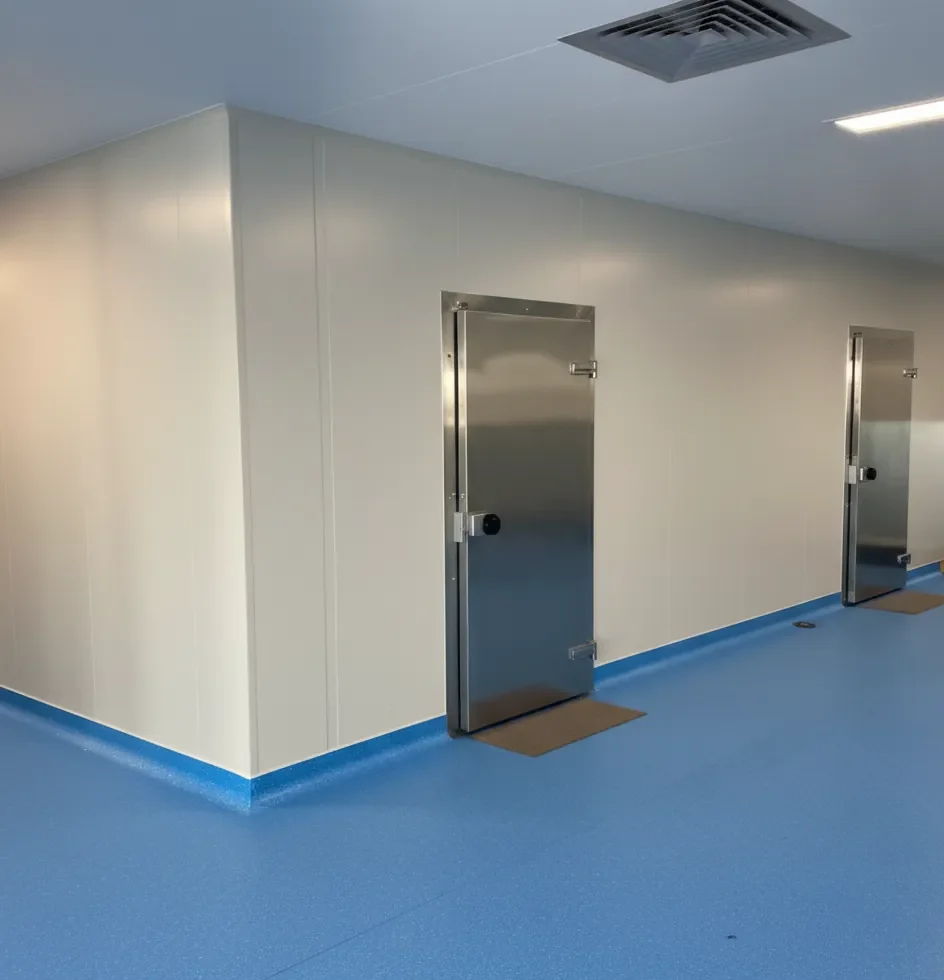
Prefab vs custom cool room installation in Tasmania made simple with CKB Solutions. Get expert guidance to choose the right fit for your commercial kitchen.
Proper refrigeration is essential for every commercial kitchen in Tasmania to ensure food safety and operational efficiency. From cafés to large food processors, a reliable cool room helps businesses meet strict standards while streamlining daily workflows. When considering cool room installation in Tasmania, the choice between prefab and custom solutions depends on understanding the benefits and limitations of each option.
Why Your Kitchen Needs a Cool Room
A well-designed cool room is essential for maintaining freshness, reducing waste, and ensuring smooth workflows in any commercial kitchen. In Tasmania’s variable climate, consistent temperature control helps preserve stock and meet strict industry regulations. Whether for a small café or a large hospitality venue, investing in a cool room supports compliance, improves efficiency, and boosts long-term profitability.
What is a Prefab Cool Room?
Prefab cool rooms are pre-manufactured, modular units designed for quick delivery and installation. They are an attractive option for businesses that want a straightforward solution without long lead times.
Advantages of prefab cool rooms include:
• Faster installation, minimising downtime for your business.
• Lower upfront costs compared to custom designs.
• Flexibility to relocate the unit if your business changes location.
However, prefab cool rooms generally come in set sizes and layouts, which may not always integrate seamlessly into your existing kitchen design. For smaller businesses or those needing a short-term solution, prefab units can be highly effective.
What is a Custom Cool Room?
Custom cool rooms are designed and built to match the specific requirements of your kitchen and workflow. They are ideal for businesses that prioritise efficiency, space utilisation, and long-term growth.
Advantages of custom cool rooms include:
• Tailored design to fit your exact kitchen size and layout.
• Ability to incorporate energy-efficient systems optimised for Tasmanian conditions.
• Flexible options for shelving, access points, and internal layout.
• Better scalability to support future business expansion.
Key Factors to Consider When Choosing
Deciding between prefab and custom cool rooms requires careful consideration of several factors. Each kitchen is unique, and understanding your priorities will guide you towards the best solution.
• Budget – Prefab cool rooms offer a cost-effective option for smaller businesses, while custom cool rooms need higher investment but can lower long-term costs with efficient design.
• Kitchen Size & Layout – Custom cool rooms suit tight or unusual layouts, while prefab units are convenient but may not optimise space as effectively.
• Business Growth – Custom cool rooms offer scalability for growing businesses, while prefab units may limit future storage or functionality.
• Energy Efficiency – Energy use impacts costs. Custom cool rooms offer advanced insulation and efficiency for Tasmania’s climate, while prefab units have fewer optimisation options.
• Compliance – Tasmanian businesses must follow strict food safety rules. Both options comply, but custom cool rooms tailor every detail to meet industry standards.
Reliable Cool Room Installation in Tasmania from CKB Solutions
The choice between a prefab or custom cool room depends on factors such as budget, space, and long-term business goals. Prefab options deliver a quick, cost-effective solution, while custom-built cool rooms provide greater flexibility, efficiency, and scalability. At CKB Solutions, we offer expert guidance and professional cool room installation, ensuring your cool room is compliant and tailored to drive business success.
Contact us to know the best option for your kitchen and secure a solution that works for you.
Related Blog Article:
Commercial Kitchen Equipment Supplier Tasmania: Essential Equipment Every Food Business Needs
Catering Equipment Tasmania: Startup Checklist for Aspiring Food Entrepreneurs

